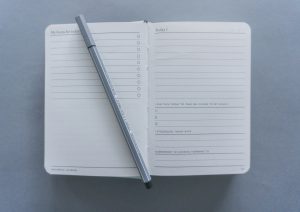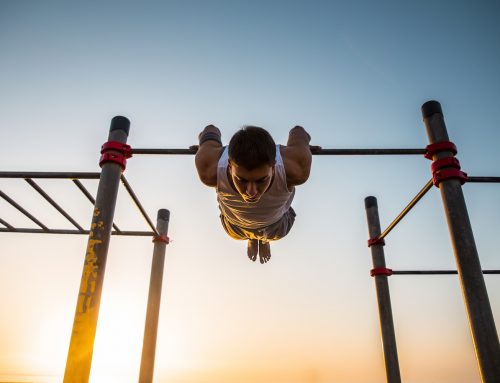
Introduction
Ever felt like your workouts aren’t paying off? You push yourself hard, follow a strict training plan, and eat well—yet progress seems slow. The missing piece might be your sleep. Quality sleep is essential for muscle recovery, focus, and overall athletic performance.
In this guide, we’ll explore why sleep matters, how to improve it, and address trending sleep topics like blue light, white noise, and magnesium. Let’s discover the secrets to better sleep and training results.
Why Sleep is Crucial for Athletes
Muscle Recovery & Growth
When you work out, your muscles experience tiny tears. Your body repairs these during sleep, especially in the deep sleep stage when growth hormone production peaks. Without enough rest, your muscles can’t fully recover, leading to fatigue and slower progress.
Additionally, studies show that chronic sleep deprivation can lead to increased cortisol levels, which can hinder muscle growth and even promote fat gain.
Cognitive Function & Focus
Training isn’t just about physical endurance. Coordination, reaction time, and mental sharpness play a big role. Lack of sleep impairs decision-making and increases reaction times, which can affect performance in both training and competitions.
Research also suggests that sleep deprivation affects motivation levels, making it harder to stay disciplined with workouts and nutrition.
Injury Prevention
Fatigue increases the risk of poor form, slow reflexes, and misjudgments. Studies show that athletes who get less than six hours of sleep are at a higher risk of injury. Prioritizing rest can help you stay strong and train consistently.
Sleep Quality vs. Sleep Quantity
You might wonder: How long should I sleep? The ideal amount varies, but most athletes need between 7 to 9 hours per night. However, quality matters just as much as quantity.
A sleep cycle lasts about 90 minutes and consists of different stages, including deep sleep and REM sleep. Waking up in the middle of a cycle can make you feel groggy. Using a sleep-tracking app can help you find the best wake-up time based on your cycles.
Common Sleep Disruptors & How to Fix Them
Blue Light Exposure & Screen Time
Screens emit blue light, which suppresses melatonin, the hormone responsible for sleep. Using devices before bed can make falling asleep harder. To fix this:
- Reduce screen time 1-2 hours before sleep.
- Use blue light filters on your devices.
- Try blue light-blocking glasses if evening screen use is unavoidable.
White Noise & Volume Levels
White noise can help mask background sounds and improve sleep. However, the volume matters. Experts recommend keeping it moderate—loud noises can disturb sleep instead of enhancing it.
Magnesium for Sleep
Magnesium helps muscles relax and supports nervous system function. Some studies suggest it can improve sleep quality. Natural sources include spinach, nuts, and seeds. If you struggle with sleep, a magnesium supplement before bed might help.
Additionally, magnesium has been linked to reduced stress and anxiety, both of which contribute to better sleep quality.
Sleep Apnea & Breathing Issues
Sleep apnea affects oxygen levels, leading to poor sleep and fatigue. Some athletes, especially those with a thick neck or high muscle mass, are at risk. A sleep apnea mouth guard can help by keeping the airway open during sleep. If you snore loudly or wake up feeling unrested, consider consulting a specialist.
Practical Sleep Tips for Athletes
Pre-Sleep Routine
A good wind-down routine signals to your body that it’s time to rest. Try:
- Light stretching or yoga.
- Meditation or deep breathing.
- Limiting caffeine in the evening.
- Keeping a consistent bedtime.
Music for Sleep – Helpful or Not?
Soft, slow-tempo music can help you relax. However, loud or high-energy music might have the opposite effect. If you enjoy sleeping with music, opt for instrumental tracks or nature sounds at a low volume.
Ideal Sleeping Environment
- Temperature: Keep your room cool, around 18°C (65°F).
- Darkness: Use blackout curtains to block out light.
- Comfort: A supportive mattress and pillow can make a huge difference.
Supplements That May Help
- Magnesium: As mentioned earlier, it can aid relaxation.
- Melatonin: Helps regulate the sleep cycle but should be used occasionally.
- L-theanine: Found in green tea, promotes relaxation without drowsiness.
- Glycine: Some research suggests glycine can improve sleep quality by lowering body temperature and calming the nervous system.
FAQs & Trending Sleep Questions
Why is sleep important?
Sleep is crucial for recovery, cognitive function, and overall health. It affects energy levels, muscle repair, and immune function.
How long is a sleep cycle?
A sleep cycle lasts about 90 minutes and includes different sleep stages. Waking up at the end of a cycle can help you feel refreshed.
Conclusion
Sleep is just as important as training and nutrition for athletic performance. By improving your sleep habits, you can enhance recovery, focus, and overall well-being. Start making small changes today and see the impact on your workouts.
Want to maximize your performance? Download Caliverse for expert workout plans tailored to your fitness goals!
About the author : Reinis Ludboržs








